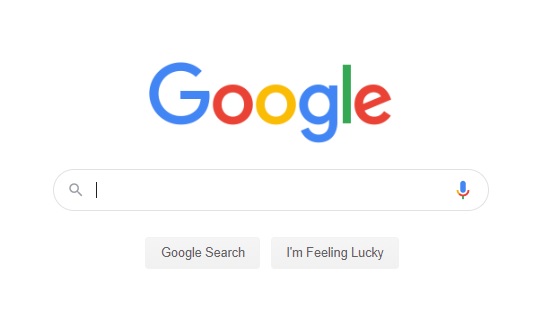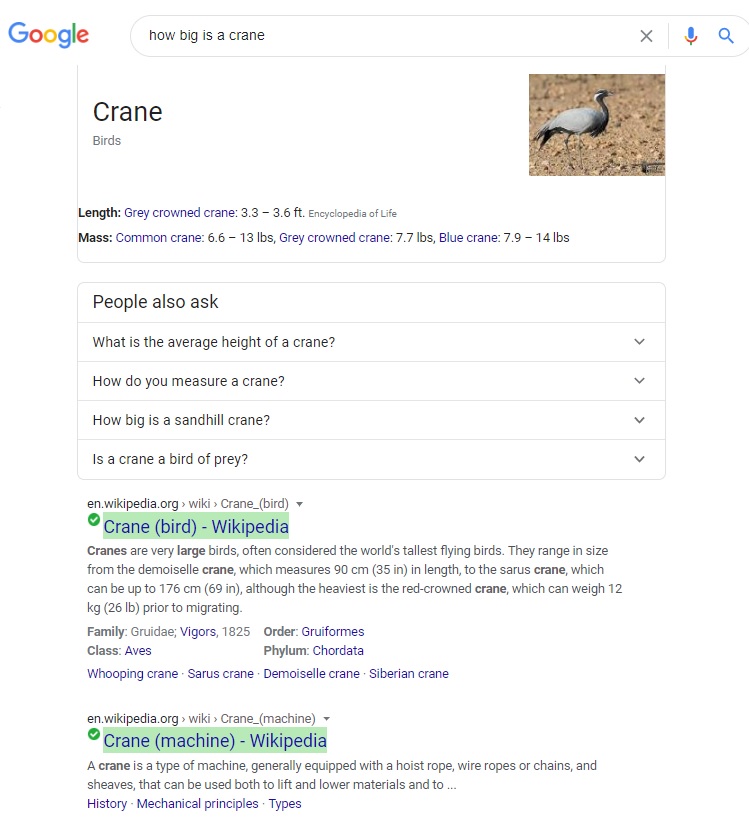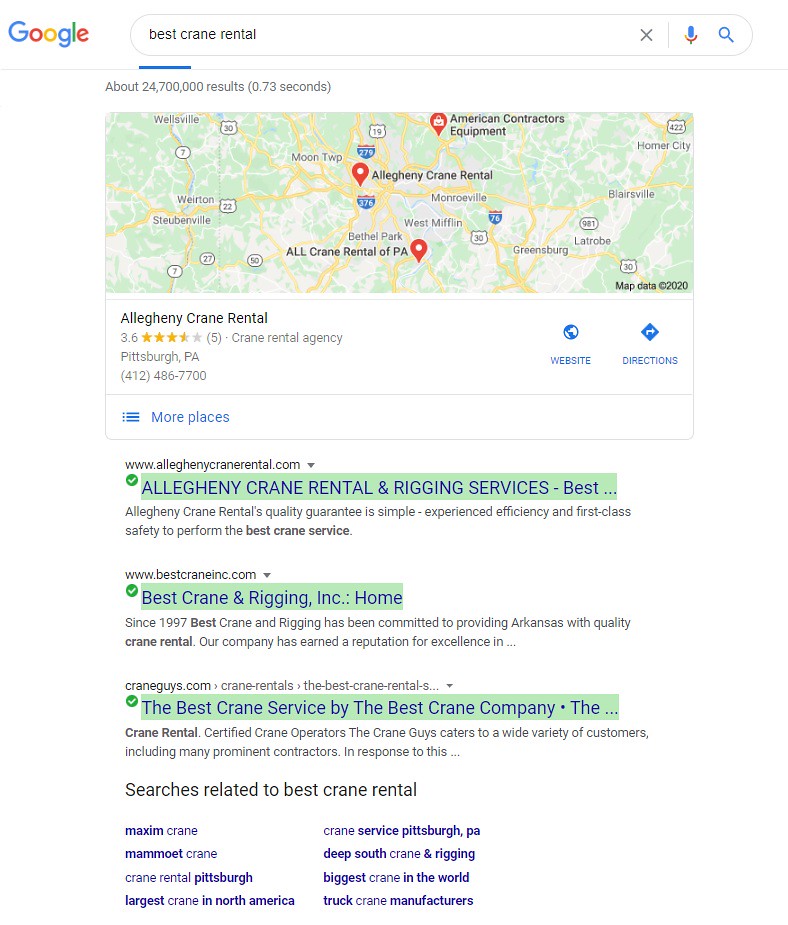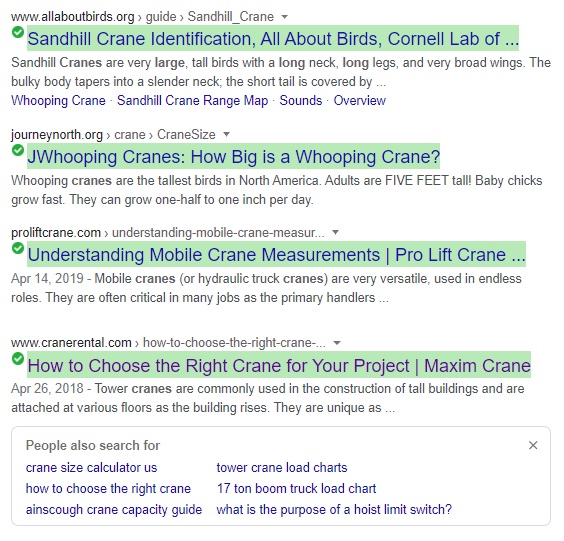When you don’t know the answer to a question, what do you do? Years ago, you might call up a friend or head to the local library to do some research. Today, however, finding an answer to your question is as simple as opening up your favorite Internet browser and typing in a search query.
In the early days of the Internet, your search results might vary depending which search engine you used. Over the decades, however, the list of popular search engines has dwindled and Google reigns supreme. Google holds over 75% of the market share so, if you want your website to succeed, you have to figure out how to make it show up on Google search results. That’s where SEO and understanding Google’s algorithm comes into play.
Understanding Google’s Algorithm
If your website is already established, making a few tweaks here and there can boost your ranking and help increase traffic to your site. If you’re just starting out, the best thing you can do is spend some time researching SEO tactics and do some extra reading to understanding Google’s ranking algorithm.

Neil Patel, New Yok Times Bestselling author and online marketing genius, says that while Google’s search engine is technically complex, it’s actually pretty easy to understand once you know the basics. He says, “there are hundreds [some say thousands] of different factors taken into account so that the search engine can figure out what should go where.” The good news for you is that you don’t have to know every single one of those factors. Having a basic understanding of how Google’s search engine works will make all the other SEO secrets you’ve read fall into place.
Here are some things you should know about Google’s search engine:

Now that you have a better understanding of how Google’s algorithm works, you’re ready to put that knowledge to work. Read on to learn some SEO secrets that could help you outrank your competition.
6 Surprising SEO Secrets
You don’t necessarily have to become a master in all things SEO for your page to rank well, but you should at least focus on a few key elements and do them well. The following SEO secrets may open your eyes and help you decide which aspects of SEO will be the most beneficial to focus on for your site.
Here are the top 6 surprising SEO secrets you should know:
Creative SEO Tips to Improve Your Ranking
Optimizing your website to improve search rankings doesn’t have to be boring. You don’t necessarily need to spend hours completing an in-depth SEO analysis or researching long-tail and LSI keywords. If you’re looking for some creative ways to boost your rankings, here are a few ideas.
Here are some creative tips to help you outrank the competition:
In the early days of the Internet, your search results might vary depending which search engine you used. Over the decades, however, the list of popular search engines has dwindled and Google reigns supreme. Google holds over 75% of the market share so, if you want your website to succeed, you have to figure out how to make it show up on Google search results. That’s where SEO and understanding Google’s algorithm comes into play.
Understanding Google’s Algorithm
If your website is already established, making a few tweaks here and there can boost your ranking and help increase traffic to your site. If you’re just starting out, the best thing you can do is spend some time researching SEO tactics and do some extra reading to understanding Google’s ranking algorithm.

Neil Patel, New Yok Times Bestselling author and online marketing genius, says that while Google’s search engine is technically complex, it’s actually pretty easy to understand once you know the basics. He says, “there are hundreds [some say thousands] of different factors taken into account so that the search engine can figure out what should go where.” The good news for you is that you don’t have to know every single one of those factors. Having a basic understanding of how Google’s search engine works will make all the other SEO secrets you’ve read fall into place.
Here are some things you should know about Google’s search engine:
- Google crawls the web with spiders – automated programs or bots - that search for new information. They locate and record 300 to 500 new web pages every minute of every day.
- That information is stores in a database that labels the data and what the page is about – this information is used to compile results with someone types in a search query.
- Google uses an algorithm to rank webpages by how authoritative they are, based in part of the number, relevance, and quality of links it receives.
- Early versions of the algorithm favored high keyword density which led to keyword stuffing (content that uses the keyword heavily but doesn’t necessarily address the user’s query.
- Newer versions of the algorithm use RankBrain technology which incorporates artificial intelligence to continually improve its own function.
- RankBrain analyzes the connection between links and page content to determine the context of the search and to display the most relevant search results.
- The more information RankBrain has about a site and its content, the more likely it is to show up in relevant search results – making sure Google has the information it needs to understand your site and rank it properly is the entire idea behind SEO.

Now that you have a better understanding of how Google’s algorithm works, you’re ready to put that knowledge to work. Read on to learn some SEO secrets that could help you outrank your competition.
6 Surprising SEO Secrets
You don’t necessarily have to become a master in all things SEO for your page to rank well, but you should at least focus on a few key elements and do them well. The following SEO secrets may open your eyes and help you decide which aspects of SEO will be the most beneficial to focus on for your site.
Here are the top 6 surprising SEO secrets you should know:
- Keyword research isn’t the be-all and end-all of SEO. Some websites succeed through positive website usage data without doing in-depth keyword research. The longer someone spends on your page and the more links you accumulate, the more likely Google is to start paying attention and to include your site in search results for relevant topics.
- Headings are just as important as content. Though it’s still true that “content is king,” only about 16% of users read a page word-for-word while 79% simply scan. Using a variety of heading tags (H1 to H6) which include relevant keywords boosts rankings and helps users find what they need so they don’t immediately click back to the SERPs.
- Meta descriptions aren’t optional. The title tag and meta description are what Google uses to determine what your page is about – it’s also the information that shows up in SERPs. At the very least, make sure these things are accurate and keyword optimized.

- Images are a strong SEO opportunity. To keep your readers engaged, it’s a good idea to break up big blocks of content and images are a great way to do that. More than that, however, images can greatly impact your SEO. Make sure your image titles and alt text are optimized.
- Building relationships is just as important as link-building. While link-building is absolutely essential for SEO, you want to make sure those links come from reputable and relevant sources. Instead of trying to accumulate as many links as possible, your time might be better spent developing connections with real people to create long-term link-building opportunities and to increase engagement. Connect with local businesses and influencers to establish relationships.
- There is such a thing as over-optimization. Many web developers spend hours trying to find the perfect combination of SEO tactics, but the truth is there may not be a real secret to success on the web. It’s important to incorporate a variety of SEO strategies to boost your ranking but stuffing your content with too many keywords or overloading your page with links might hurt you in the long run. You can have too much of a good thing.
Creative SEO Tips to Improve Your Ranking
Optimizing your website to improve search rankings doesn’t have to be boring. You don’t necessarily need to spend hours completing an in-depth SEO analysis or researching long-tail and LSI keywords. If you’re looking for some creative ways to boost your rankings, here are a few ideas.
Here are some creative tips to help you outrank the competition:
- Develop a mental picture of your target audience. Your primary goal is to reach people with your website and while SEO is how you’re going to do it, don’t forget get so caught up in the optimization that you forget about your audience. Before you start, do some research to make sure you have a clear understanding of who you’re trying to reach then create your content and design your site for that audience.
- Use your H1 heading correctly. Every page needs a H1 tag – only 1 per page! You should use an H1 heading at the top of each website to set the stage for the content that follows. Make sure it includes the most relevant keyword and gives your reader an idea what they’ll find in the content below.
- Add related keywords to pages that are already doing well. If one of your pages is already ranking well, update the page with similar keywords to improve visibility and strengthen your rankings. For example, if you have an equipment rental company and you are ranking well for “best crane rental,” check the bottom of the SERP for related searches to find additional keywords you can try to rank for. For example, you might try to rank for certain brand names.

- Organize the pages on your site according to theme. Google’s algorithm rewards sites that show authority in a specific topic or keyword. If you cover multiple subjects or provide multiple related services, break up your webpages by theme so you can establish authority in each one. Each themed page should have at least 5 supporting links.
- Make sure your site looks good on mobile platforms. Handheld devices are becoming the most popular way for users to access the Internet, especially to find services. If your website doesn’t work well on mobile platforms, users won’t hesitate to click back to the search page and try another one. Google’s Accelerated Mobile Pages (AMP) is a framework you can use to create mobile-friendly pages.
- Add video content to your webpage. Though well-crafted content is an artform, some users just want to get an answer to their question as quickly and as succinctly as possible – they don’t want to read. Adding video content to your page can help you retain more users and it may boost your rankings as well. Do some research to find out what your competitors are doing video-wise and test out a few different formats to see what works best.
- Make your site voice-search friendly. Thanks to tools like Google’s mobile assistant and Amazon Alexa, voice search is becoming more and more commonplace. The average person’s speech is about 3 times faster than their typing speed, so many people are starting to prefer this search method. Factors that impact your site’s voice search rankings include website speed, keyword optimization, optimized content, and website security.
